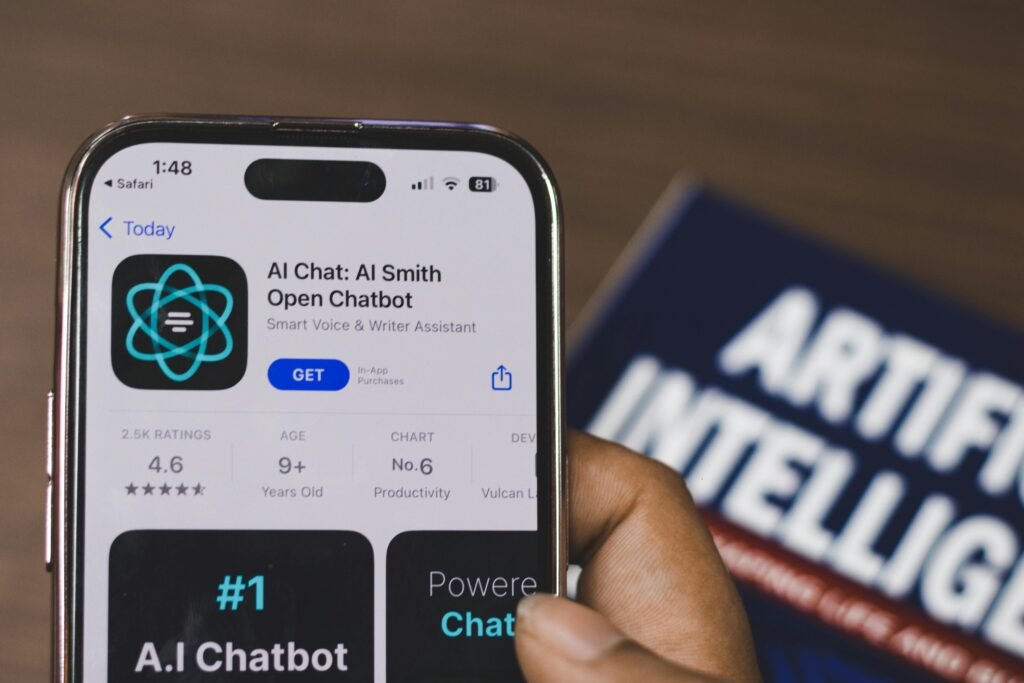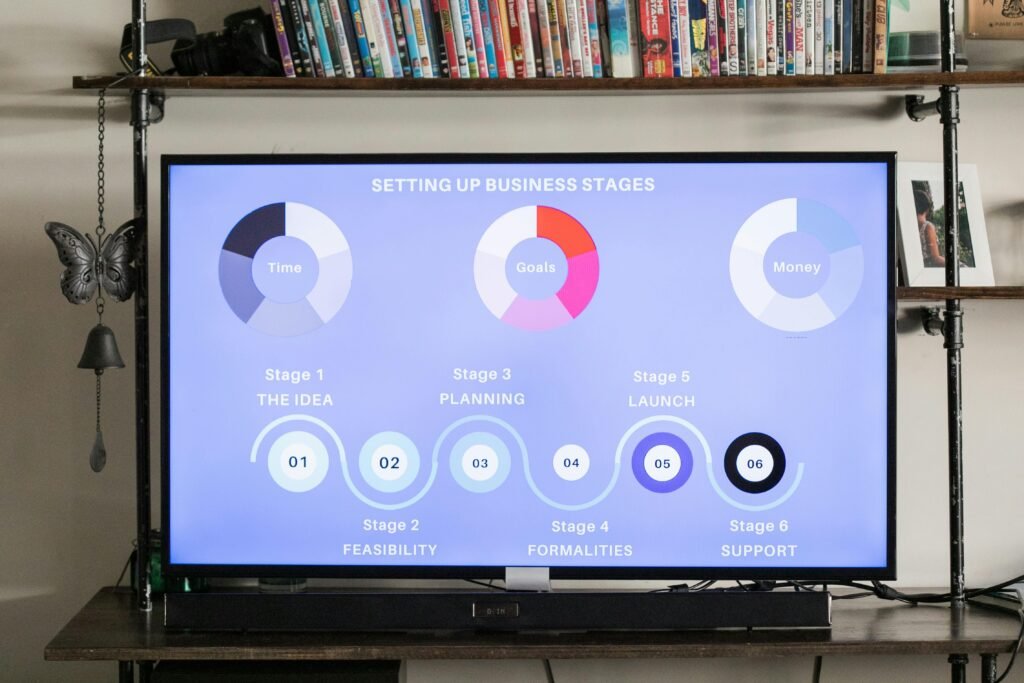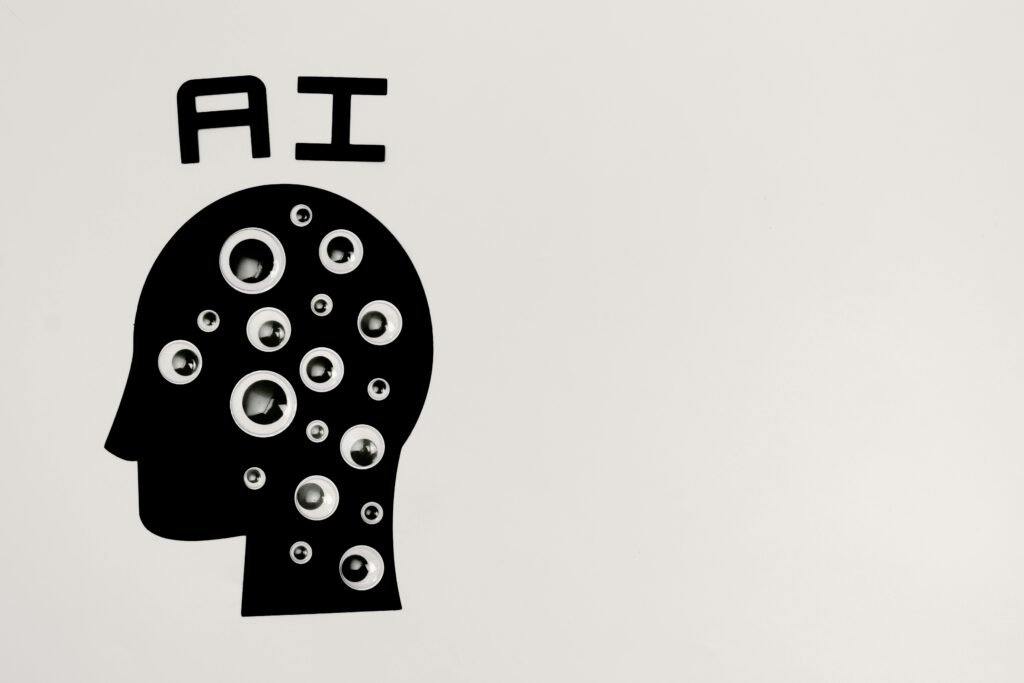
Understanding AI in Self-Improvement
Artificial intelligence is transforming the way people approach self-improvement by offering highly tailored solutions designed to align with individual needs.
Unlike traditional methods, which often rely on generalized advice, AI can process vast amounts of data to uncover patterns and provide insights specific to each person.
This allows for a level of precision and personalization that was previously out of reach.
By leveraging machine learning, AI tools continuously refine their understanding of a user’s behavior, habits, and preferences.
For example, AI can analyze a person’s daily routines, pinpoint areas where time is being underutilized, and suggest practical strategies to maximize productivity.
This adaptability ensures that recommendations remain relevant and actionable as circumstances change over time.
Another key strength of AI in this space is its ability to synthesize data from various aspects of a person’s life.
For instance, if someone is focused on improving both physical health and stress management, an AI system might identify how a lack of quality sleep impacts their fitness performance and emotional well being.
It could then recommend specific sleep hygiene practices, relaxation techniques, or changes to workout timing, creating an integrated approach that addresses multiple goals simultaneously.
AI also brings unique efficiency to the process of identifying potential blind spots.
Humans may overlook certain behaviors or patterns that hinder progress, but AI excels at detecting trends and inconsistencies in data.
For instance, if someone is trying to save money but frequently makes impulsive purchases, an AI-driven app could flag this habit and suggest spending controls or alternatives to curb the behavior.
The ability to process and analyze diverse inputs also means that AI can cater to different learning styles and preferences.
Whether someone absorbs information better through visual aids, step by step guides, or interactive exercises, AI can adjust its format to ensure that guidance feels accessible and engaging.
In essence, artificial intelligence acts as a uniquely responsive and insightful tool, capable of customizing its approach based on each individual’s circumstances, challenges, and aspirations.
Its combination of data-driven insights, real time adaptability, and multifaceted support offers a new level of effectiveness in personal development efforts.
Personalized Goal Setting

Setting goals is a foundational step in self-improvement, but generic approaches often fail to account for the unique circumstances and needs of each individual.
Artificial intelligence changes this dynamic by creating goals that are tailored to a user’s specific data and preferences.
Using advanced analysis, AI evaluates information like daily habits, activity levels, and past achievements to recommend goals that are realistic and actionable.
For instance, AI tools such as Habitica and Strides take into account a user’s behavior patterns to design goals that align with their current routines.
If someone is looking to build a healthier lifestyle but struggles with consistency, these tools can recommend incremental targets, like starting with two 10-minute walks per day and gradually increasing duration as progress is made.
This customization helps users stay motivated and avoid feeling overwhelmed.
Another way AI enhances goal setting is by factoring in a user’s preferences and priorities.
Whether someone wants to focus on improving their physical health, boosting productivity, or learning a new skill, AI can sort through these interests and establish a structured plan that reflects their aspirations.
By offering reminders, tracking progress, and adapting goals based on outcomes, these systems create a sense of accountability that can often be difficult to maintain alone.
This tailored approach has gained significant traction in recent years, with more than half of consumers believing that AI could enhance the customer experience, underscoring its potential in personalized goal setting.
These technologies not only help users identify what is achievable but also provide the tools and insights necessary to turn those goals into reality.
Through ongoing adjustments and a focus on personalization, AI has redefined how individuals can effectively approach personal growth.
Adapting to Unique Traits

Artificial intelligence brings a unique ability to recognize and work with the individual traits that make each person distinct.
By analyzing personal attributes such as learning preferences, personality types, and cognitive tendencies, AI offers customized recommendations that match a user’s natural tendencies.
For example, a person who thrives on visual information might be guided toward tools that include graphs, charts, or videos, while someone who learns better through active participation could be provided with interactive exercises or step by step tasks.
AI also helps individuals leverage their strengths while addressing areas that may need improvement.
For instance, if someone is naturally detail oriented but struggles with big picture planning, an AI system can balance these tendencies by suggesting frameworks that encourage long term thinking while still allowing attention to detail.
Conversely, for individuals who excel at strategic vision but find it difficult to stay organized, AI might recommend tools to break goals into smaller, actionable steps that feel manageable.
Another standout feature is how AI adapts to emotional states and behavioral patterns.
By assessing inputs such as mood logs or biometric data from wearable devices, AI can suggest changes that align with both emotional well being and personal goals.
For example, if a user logs high levels of stress, the system might recommend calming techniques like mindfulness exercises or adjusting deadlines to alleviate pressure.
This ensures that strategies remain both practical and empathetic, catering to the user’s well being alongside their ambitions.
AI tools can also integrate external factors to ensure recommendations fit seamlessly into a user’s life.
For example, they might take into account environmental triggers, such as a noisy workspace, and propose noise canceling solutions or a shift in location for better focus.
For individuals managing multiple responsibilities, AI can analyze time constraints and suggest optimized schedules that work within their limitations while still promoting growth.
Ultimately, by understanding not just what individuals want to achieve but also how they operate, AI systems create improvement plans that feel natural, engaging, and achievable.
This thoughtful integration of personal traits helps users approach self-improvement in a way that aligns with their inherent abilities, making progress feel less like a struggle and more like a personalized journey.
Overcoming Challenges

Challenges are an inevitable part of personal growth, but artificial intelligence offers a fresh perspective on addressing them in a targeted and efficient manner.
By analyzing behavioral data and patterns, AI tools can pinpoint areas where progress may be stalling and provide actionable strategies to overcome these roadblocks.
This targeted approach minimizes guesswork and helps users focus on the most impactful areas for improvement.
One example is managing procrastination.
If a user frequently delays important tasks, an AI-powered tool can analyze the times of day when they are most productive and suggest optimizing their schedule around these peak periods.
Similarly, it might recommend breaking tasks into smaller, more manageable steps, creating a sense of accomplishment that keeps motivation high.
This kind of practical insight often leads to significant improvements in productivity without overwhelming the individual.
Another common challenge is staying consistent with long term goals.
For individuals who struggle to maintain routines, AI tools can identify triggers that disrupt consistency and propose tailored solutions.
For instance, if distractions from social media are a recurring issue, AI might suggest screen time limits or productivity focused apps that block access to certain platforms during work hours.
By tackling these underlying factors, users are better equipped to stay on track.
AI also provides invaluable support for users navigating more complex or emotional obstacles.
For example, someone dealing with the stress of balancing a demanding career and personal goals might receive tailored advice to improve time management while incorporating mindfulness practices to reduce burnout.
These adjustments not only address the immediate challenge but also contribute to a more sustainable approach to personal growth.
Additionally, AI tools are especially effective at helping users recognize and confront limiting beliefs or habits.
For someone aiming to develop better financial habits, an AI app could analyze spending patterns and offer specific recommendations to curb impulsive purchases or allocate savings toward meaningful goals.
These insights are presented in a way that feels constructive and achievable, empowering users to make smarter decisions.
AI’s ability to adapt to individual challenges is further enhanced by its capacity to learn and evolve alongside the user.
This means that as obstacles shift or new ones emerge, the AI remains a reliable resource for practical, real time solutions.
Through this dynamic, data driven support, individuals can approach challenges with confidence, knowing they have the tools to navigate even the most persistent issues.
Continuous Feedback and Adjustment

AI excels at offering dynamic, real time adjustments that make self-improvement more precise and impactful.
By constantly analyzing user data, AI tools can detect shifts in progress, preferences, or circumstances, allowing for recommendations to evolve alongside the individual.
This constant feedback loop ensures that personal growth strategies stay relevant and aligned with the user’s journey, making it easier to sustain motivation and achieve long term success.
For instance, an AI app designed to track fitness goals might notice that a user’s performance plateaus after a few weeks of following the same workout routine.
Instead of sticking with a plan that no longer delivers results, the AI could suggest increasing workout intensity or trying alternative exercises to reignite progress.
Similarly, someone focusing on learning a new skill, such as a language, might receive prompts to adjust lesson pacing based on their performance in recent practice sessions, ensuring the learning process remains challenging yet manageable.
One of AI’s greatest strengths in this area is its ability to recognize patterns that humans might miss.
For example, a productivity tool could identify subtle trends, such as consistent dips in output during specific times of day, and suggest optimizing the schedule to align tasks with peak focus periods.
If a user logs feeling drained on certain days, the system might analyze related data—like sleep patterns, workload, or hydration levels—and offer targeted recommendations to address the issue holistically.
AI also offers the flexibility to adapt its communication and approach based on a user’s evolving needs.
For users who prefer frequent updates, some tools may send daily progress reports and reminders, while others might focus on weekly summaries for individuals who benefit from less frequent check-ins.
This customization ensures that feedback feels intuitive and supportive, rather than intrusive.
Moreover, continuous feedback is particularly valuable in helping users recover from setbacks.
If someone falls short of a goal, instead of framing it as a failure, the AI can reframe the situation by analyzing what went wrong and proposing actionable adjustments.
For instance, if a user aiming to write consistently misses multiple deadlines, the system might suggest breaking the writing goal into smaller chunks or revisiting the schedule to create a more realistic timeline.
By providing this adaptive guidance, AI empowers users to approach self-improvement with resilience and confidence.
Success Stories

AI-driven self-improvement tools have made a meaningful impact on countless individuals, with users reporting tangible results in areas like productivity, health, and personal development.
For instance, a young professional juggling work and studies was able to optimize their time management through an AI app that analyzed their schedule and suggested adjustments.
By identifying patterns of procrastination and highlighting peak productivity hours, the app helped them prioritize tasks more effectively, leading to improved grades and a healthier work life balance.
Another user, struggling with fitness consistency, shared how an AI-powered fitness platform turned their routine around.
The platform created a personalized workout plan based on their fitness level, preferences, and goals.
When life became hectic, the AI adapted the routine to fit shorter, high impact workouts, ensuring progress without the guilt of skipping sessions.
This flexibility helped them stay on track and, eventually, achieve their weight and strength targets.
A small business owner managing financial goals utilized an AI budgeting tool to address impulsive spending habits.
By analyzing purchase data and categorizing expenses, the tool offered actionable recommendations, such as setting up automatic savings transfers and creating spending limits for non essential items.
Within months, the user reported noticeable improvements in their financial stability and a renewed sense of control over their budget.
For individuals managing emotional well being, AI has also proven to be an invaluable resource.
One user dealing with high stress levels turned to an app that combined mood tracking with guided relaxation techniques.
The AI detected recurring patterns, such as heightened stress on Monday mornings, and provided tailored suggestions like incorporating a mindfulness session at the start of the day.
Over time, the user noticed a significant reduction in stress and a more positive outlook on their week.
Additionally, language learners have benefited from AI’s adaptability.
A user preparing for international travel shared how an AI-based language app customized their lessons to focus on practical conversational skills.
By tracking their progress and identifying weak points, the tool refined the content to reinforce areas where they needed the most improvement.
They arrived at their destination feeling confident and capable of navigating everyday interactions with ease.
These real world examples underscore the profound potential of AI in reshaping how individuals approach their unique challenges, creating opportunities for meaningful and lasting growth.
Future of AI in Personal Growth

Artificial intelligence is set to play an even more prominent role in personal growth as technology becomes more advanced and widely adopted.
With innovations in machine learning and data analysis, AI tools will be better equipped to deliver increasingly precise and insightful recommendations, making self-improvement strategies more effective than ever.
These tools are likely to integrate seamlessly into daily life, enabling users to access personalized support in real time, no matter their goals or challenges.
Future advancements are expected to make AI systems even more intuitive, learning from subtle patterns and offering solutions that feel almost effortless.
For instance, wearable devices could work alongside AI to provide immediate feedback on physical and emotional states, allowing for tailored guidance on everything from energy management to decision making.
The next generation of AI tools could also better anticipate needs by leveraging predictive analytics, ensuring users stay one step ahead in their personal development journey.
The growing accessibility of AI technology will also lead to increased inclusivity, as tools are designed to cater to diverse needs and lifestyles.
For example, as AI becomes more affordable and user friendly, it will be able to support people across different age groups, cultural backgrounds, and professional fields.
This democratization of AI ensures that personal growth tools are not limited to a specific demographic but are available to anyone seeking improvement in any area of life.
Moreover, AI’s integration into emerging technologies, such as virtual reality and augmented reality, will further enhance the personal development experience.
Imagine practicing public speaking in a virtual environment tailored to mimic real life scenarios or learning new skills through highly interactive, immersive simulations.
These applications can provide users with realistic and engaging opportunities to grow in ways that traditional methods cannot replicate.
The economic and societal impact of AI is also set to be significant.
AI will create a net gain of 12 million jobs by 2025, opening new opportunities for industries centered around personal development.
Additionally, 63% of organizations worldwide plan to adopt AI within the next three years, which signals greater adoption of AI-driven tools for both professional and personal applications.
